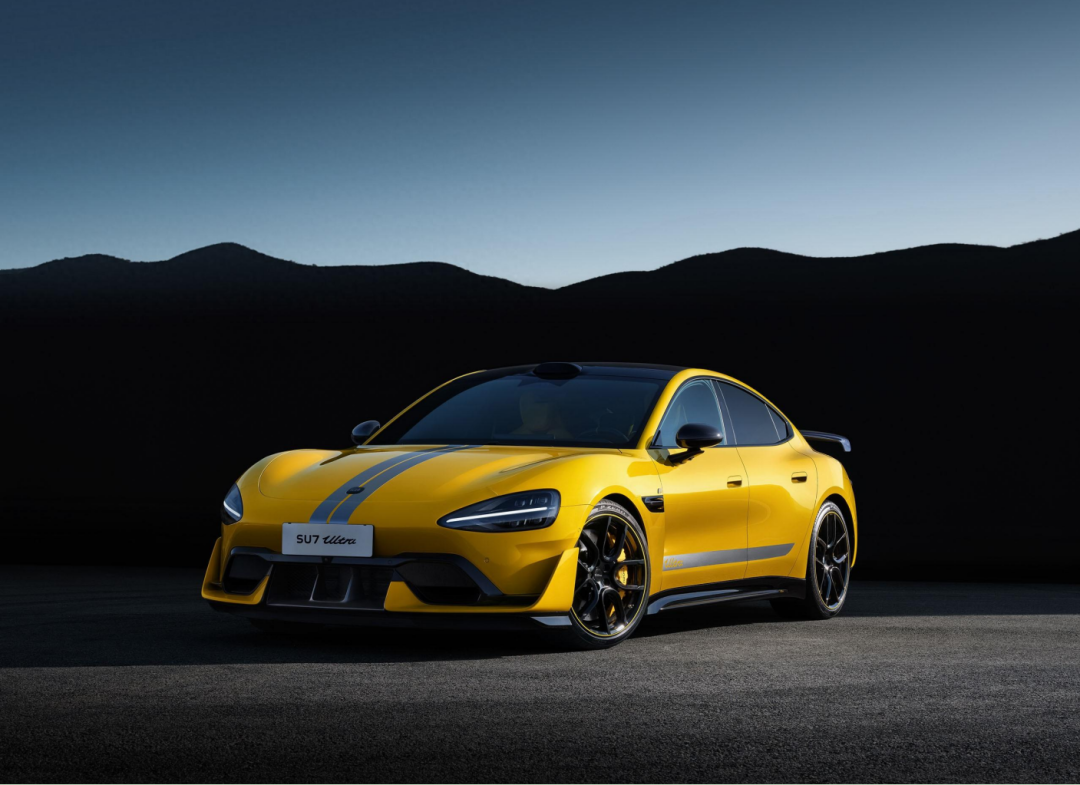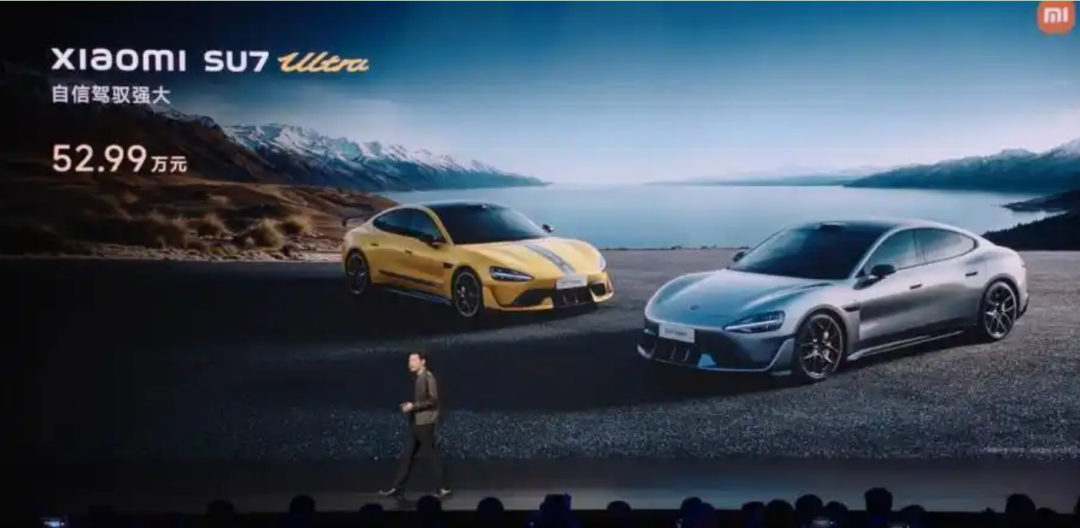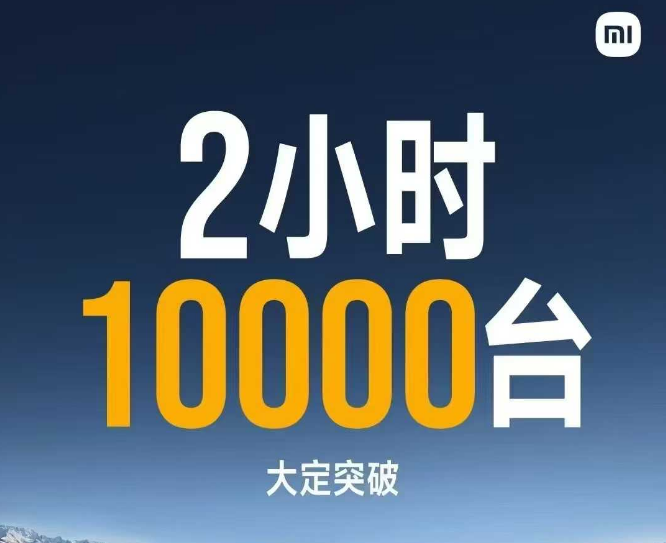Challenging Porsche and BBA: Xiaomi SU7 Ultra Redefines Pricing Power with a 'Cost-effective' Ecosystem
![]() 03/07 2025
03/07 2025
![]() 596
596
Reflecting on Xiaomi's entrepreneurial journey, Lei Jun acknowledges that in 2014, when Xiaomi's smartphone shipments first ranked globally among the top three, the triumph overshadowed underlying issues and concerns. Notably, Xiaomi missed the opportunity to capitalize on Samsung's retreat from the Chinese high-end market, necessitating twice the effort to penetrate this segment.
In 2025, leveraging the impressive demand for the SU7, Xiaomi Automobile has resolutely embarked on a high-end trajectory. On February 27th, with a starting price of 529,900 yuan, the SU7 Ultra received over 10,000 orders within two hours of pre-orders opening. At just 26.5% of the Porsche Taycan Turbo GT's price (1,998,000 yuan), consumers can acquire a vehicle with superior dynamic parameters (1548Ps vs. 1304Ps), highlighting Xiaomi Automobile's 'cost-effectiveness' strategy, which is gaining market recognition. Xiaomi is redefining 'cost-effectiveness'; it is not merely about low prices but about offering value that consumers deem 'cost-effective'.
▍A Broader Concept of 'Cost-effectiveness'
As of late 2024, the SU7, which has been on the market for nine months, has accumulated over 248,000 confirmed orders and delivered over 135,000 units. Unlike the volume-driven SU7, the SU7 Ultra's core selling points lie in its extreme performance parameters, intelligent integration capabilities, and disruptive pricing strategy.
Equipped with a V8s+V8s+V6s triple-motor setup, the SU7 Ultra boasts an output power of up to 1548Ps, with a 0-100km/h acceleration of just 1.98s and a top speed of 359km/h. Its standard features include a chassis tuned on the Nürburgring racetrack and a race-level cooling system, positioning it to compete directly with supercars. Since January 2025, the SU7 Ultra has successively set new lap records at the Zhuzhou, Chengdu Tianfu, Zhuhai, and Shanghai International Circuits.
Lei Jun particularly highlighted the achievement at the Shanghai International Circuit, where the SU7 Ultra broke the previous record held by the Taycan Turbo GT. He even joked on-site that in China, they have yet to find a suitable venue to test its top speed.

The end-to-end intelligent driving technology scenarios highlighted by the SU7 Ultra at the launch event also underscore Xiaomi's commitment to localization and practicality in intelligence and safety. The newly added 'Misacceleration Inhibition Assist' function ensures that the vehicle will not accelerate even if the accelerator pedal is mistakenly pressed when obstacles are present. The battery pack bottom features a bulletproof coating, enhancing scratch and puncture resistance and ensuring battery safety under extreme conditions.
Despite its high-end positioning, the SU7 Ultra's standard version is priced significantly lower than the pre-sale price, and lower than competitors like the NIO ET7 (starting at 548,000 yuan) and Tesla Model S (starting at 789,900 yuan). However, Xiaomi Automobile has also introduced the SU7 Ultra Nürburgring Limited Edition, priced starting at 814,900 yuan, effectively aligning with the previous pre-sale price.
What further enhances consumers' perception of 'cost-effectiveness' is the service. Xiaomi plans to launch an intelligent driving-related insurance product in April with a maximum payout of 3 million yuan, along with the Xiaomi EV Ultra Club membership program, which costs 3,999 yuan annually and is limited to 2,000 members in the first batch, offering exclusive activities such as trips to the Nürburgring in Germany and exclusive official track days.
▍Ecological Expansion and Pricing Power Reconstruction
In 2024, global sales of BBA (Benz, BMW, Audi) were 2.389 million units for Mercedes-Benz, 2.451 million units for BMW, and 1.671 million units for Audi, down 4%, 4%, and 11.8% year-on-year, respectively. Despite efforts to catch up in other global markets, it has been difficult to compensate for the lost share in China. Over the past year, BBA sales in China have declined by 6.7%, 13.4%, and 9%, respectively.
As the brand premium of BBA gradually erodes, Xiaomi Automobile aims to reconstruct product pricing power.
Since 2021, Xiaomi Group and Shunwei Capital have cumulatively invested in nearly 50 companies across the automotive industry chain, including power batteries, intelligent driving software solutions, automotive-grade chips, and LiDAR. This extensive investment covers the upstream, midstream, and downstream of the automotive industry, helping Xiaomi build a true ecosystem and thereby enhance its discourse power within the industry chain.
The SU7 Ultra's direct challenge to brands like Porsche, Tesla, and BBA in terms of performance, technology, and luxury will be reflected in pricing strategies and terminal sales. The glass sunscreen function and vanity mirror, which were well-received by female car owners in the SU7, have been elevated to a new level in the Ultra, further tapping into the female consumer market.

Moreover, Xiaomi's automobile line, including the Xiaomi SU7 Ultra, is not an isolated product but a part of Xiaomi's 'Human-Vehicle-Home Ecosystem' strategy. Through the deep integration of the MIUI in-vehicle system and Xiaomi smart home appliances, users can control home devices from within the car or remotely manage vehicle status through their phones. This ecological synergy not only enhances user experience stickiness but also transforms the car into a mobile terminal for Xiaomi's IoT ecosystem, creating new traffic inlets and data value.
This not only bolsters user loyalty to the Xiaomi brand but also provides robust support for Xiaomi Automobile's market expansion. These factors will impact the share distribution in the luxury car market, compelling traditional luxury car brands to reassess their pricing strategies.

In the first two months of 2025, Xiaomi's share price has surged by over 50%. Rumors also suggest that following the launch of the Xiaomi SU7 Ultra, the release pace of the Xiaomi YU7 will accelerate. Xiaomi Automobile will now face the challenges of ramping up production capacity and, in the long run, the ability and speed to convert the 'Human-Vehicle-Home Ecosystem' into a rigid demand for a broader consumer base.
Typesetting by Yang Shuo | Image Source: Xiaomi Automobile







